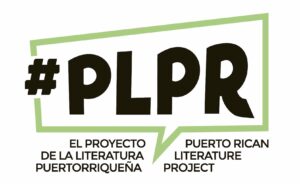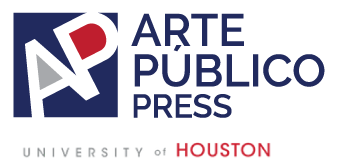Miriam Damaris Maldonado joins Recovering the US Hispanic Literary Heritage/Arte Público Press at the University of Houston as Program Manager for “El proyecto de la literatura puertorriqueña/The Puerto Rican Literature Project” (PLPR).
 Damaris Maldonado brings to the project years of experience as an award-winning poet and community organizer. She is an active promoter of cultural events in Houston and founder/member of the Houston-based Colectivo Colibrí, a feminist community organization. She participates and coordinates literary festivals and performs outreach as a social worker and as a member of the Colectivo de Grupos Puertorriqueños. Damaris Maldonado has a background in Human Behavior, Gender and Diversity and is currently studying Creative Writing at the Universidad de Sagrado Corazón in Puerto Rico. Her recent publication is Enraizada (Valparaíso Ediciones).
Damaris Maldonado brings to the project years of experience as an award-winning poet and community organizer. She is an active promoter of cultural events in Houston and founder/member of the Houston-based Colectivo Colibrí, a feminist community organization. She participates and coordinates literary festivals and performs outreach as a social worker and as a member of the Colectivo de Grupos Puertorriqueños. Damaris Maldonado has a background in Human Behavior, Gender and Diversity and is currently studying Creative Writing at the Universidad de Sagrado Corazón in Puerto Rico. Her recent publication is Enraizada (Valparaíso Ediciones).
The Mellon Foundation awarded the University of Houston (UH) a grant to establish PLPR, a free, public-facing open-access digital portal for Puerto Rican literature. PLPR includes a database in Spanish and English of approximately 50,000 assets (photographs, manuscripts, poems, videos and archival materials), a digital archive and additional resources that document the material existence and experiences of key Puerto Rican poets in the archipelago and US diaspora. The data collected for this project dates back to 1917, when President Woodrow Wilson enacted the Jones-Shafroth Act extending US citizenship to all residents of Puerto Rico, to the present.
Gabriela Baeza Ventura, executive director of Arte Público Press (APP) and co-founder of the US Latino Digital Humanities Center at UH, will lead the project in collaboration with a collective, or Colectivo, of prominent scholars, writers and translators from Puerto Rico and the US diaspora, composed of Raquel Salas Rivera, Ricardo Maldonado, Claire Jiménez and Enrique Olivares Pesante. 
PLPR’s primary goal is to make Puerto Rican literature widely accessible through the gathering, transcription and translation of poetic materials that until now have been physically archived in different collections, or not archived at all.
The portal will serve as a great resource for Latino, Caribbean and Latin American studies scholars. Not only does Puerto Rico share a similar history of colonization, slavery and military intervention as the rest of the Caribbean and Latin America, but it also produces a literature that documents the effects of that colonialism and offers decolonial counter-traditions. By creating a bilingual resource, the archive will open the door to the formation of essential Trans-Caribbean connections.
To read more about PLPR, please visit the Arte Público Press webpage: https://artepublicopress.com/proyectolitpr/





